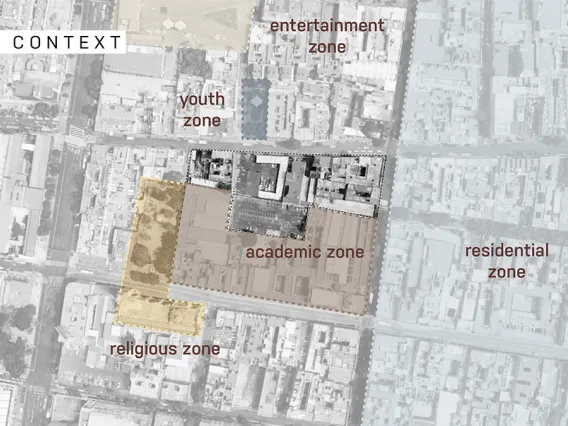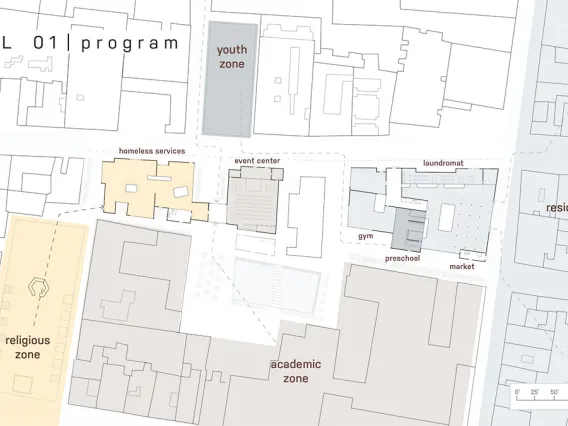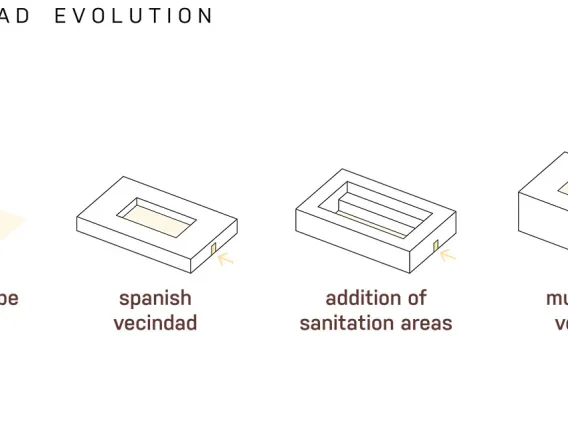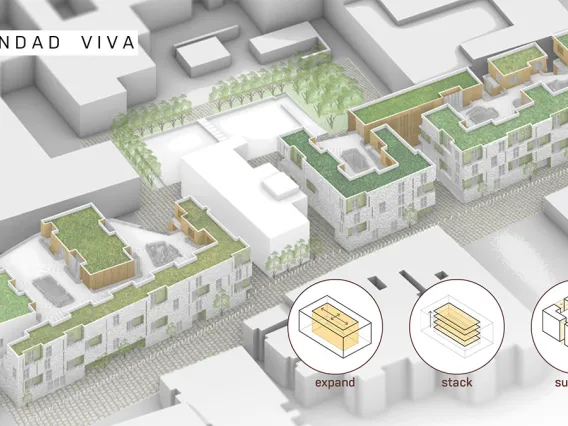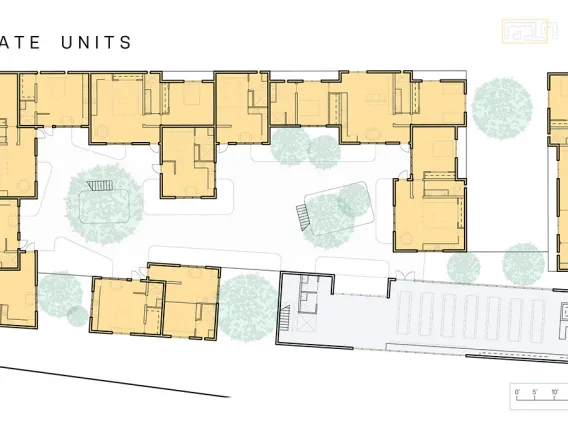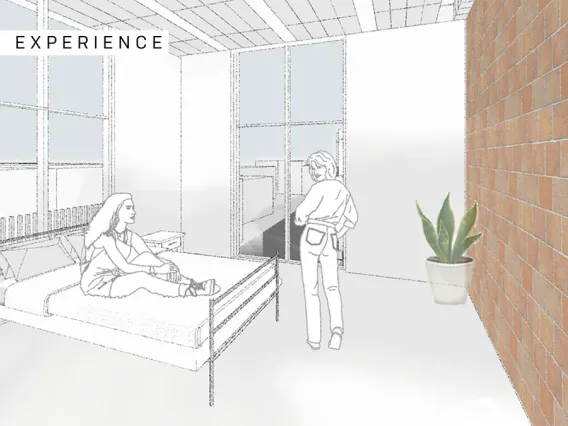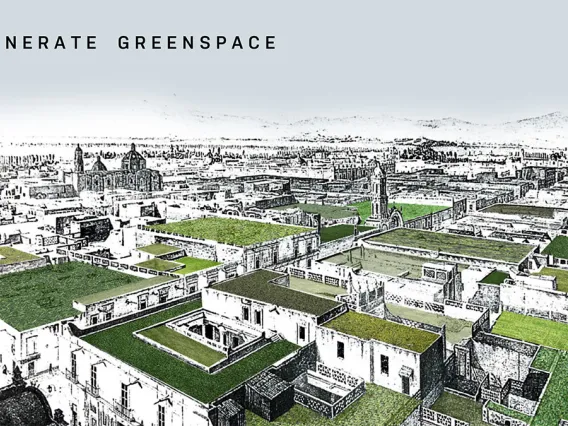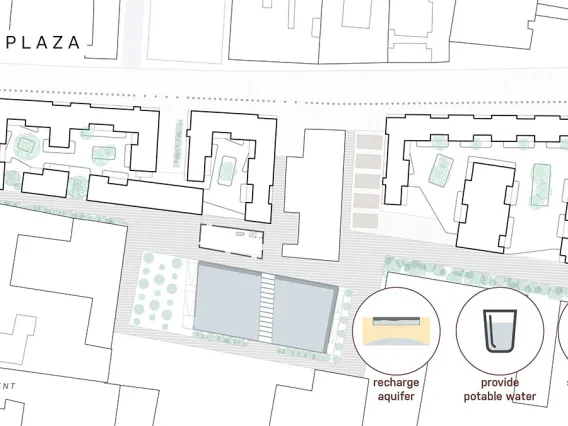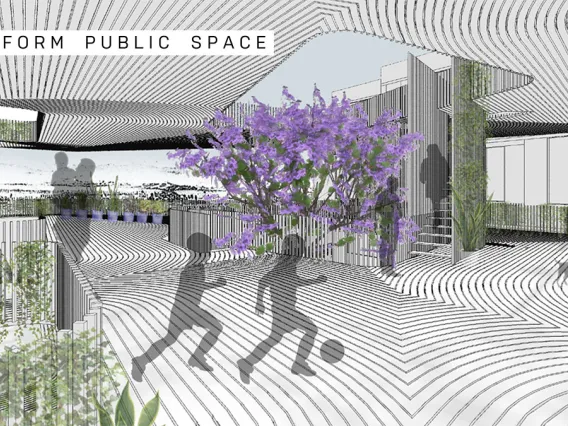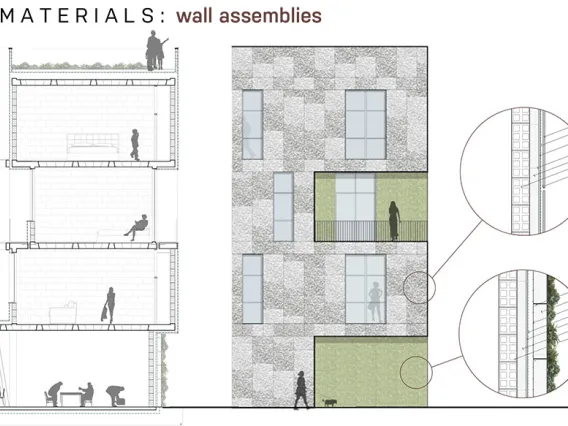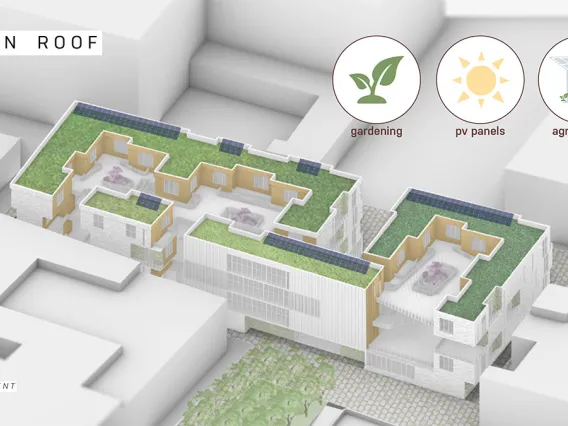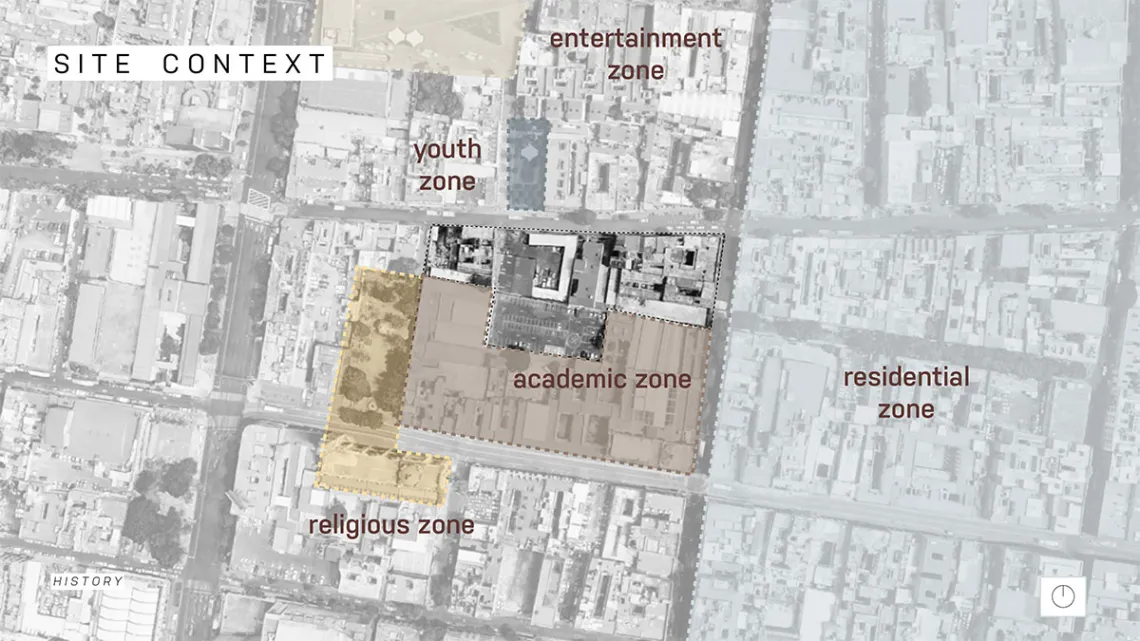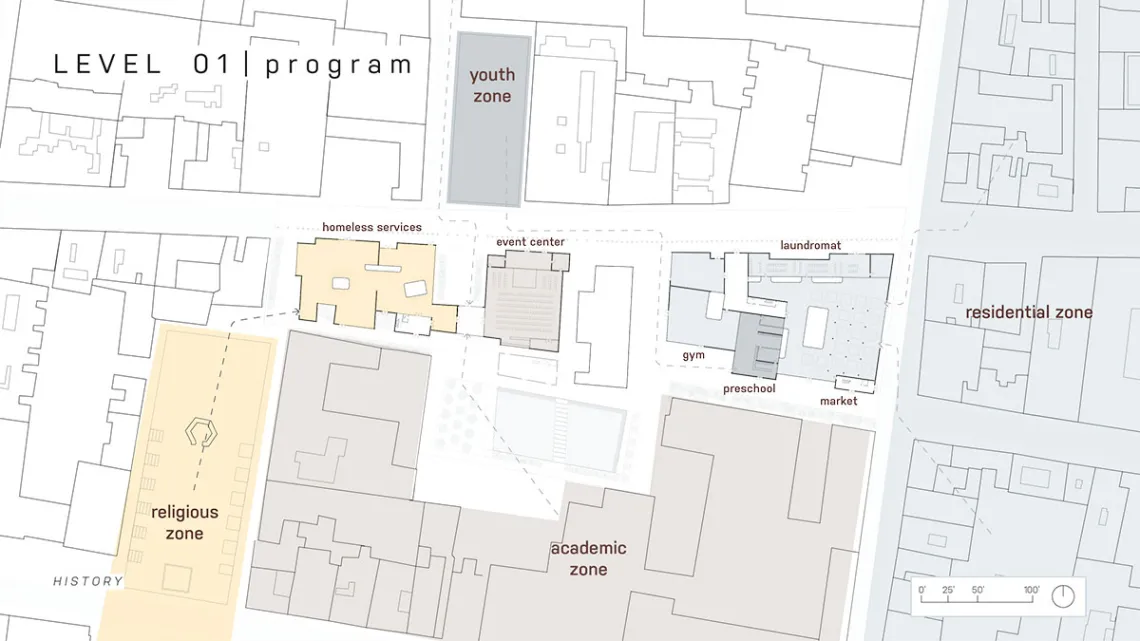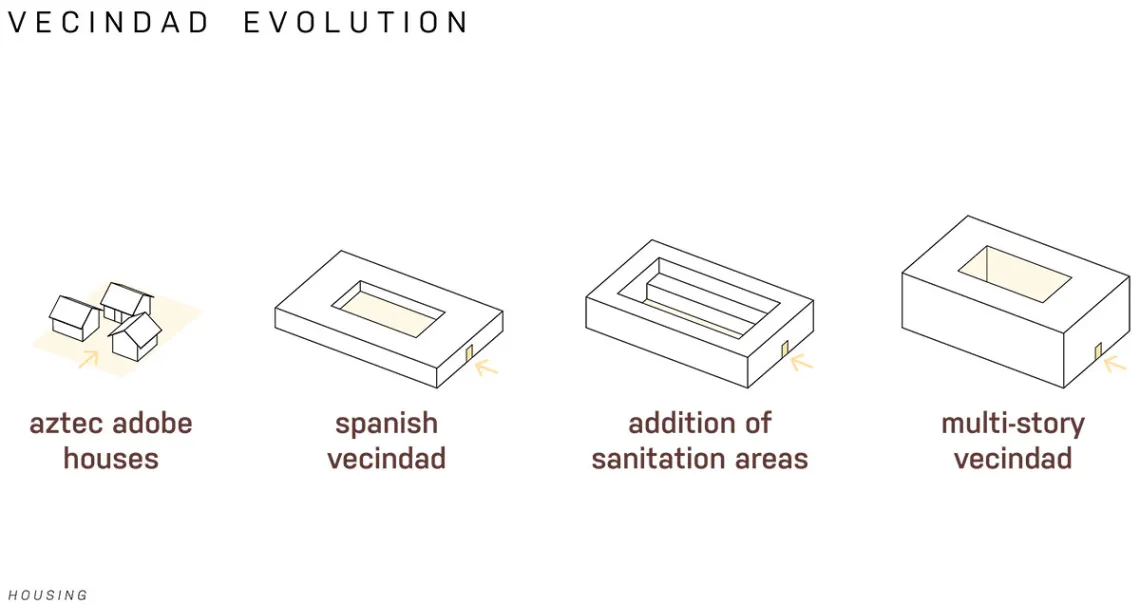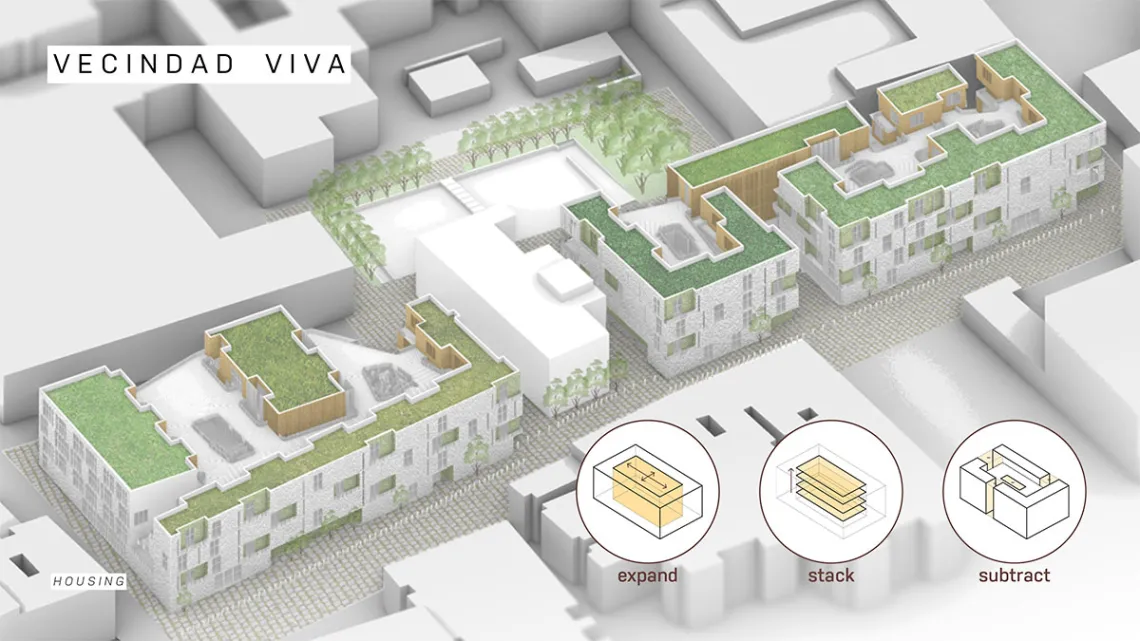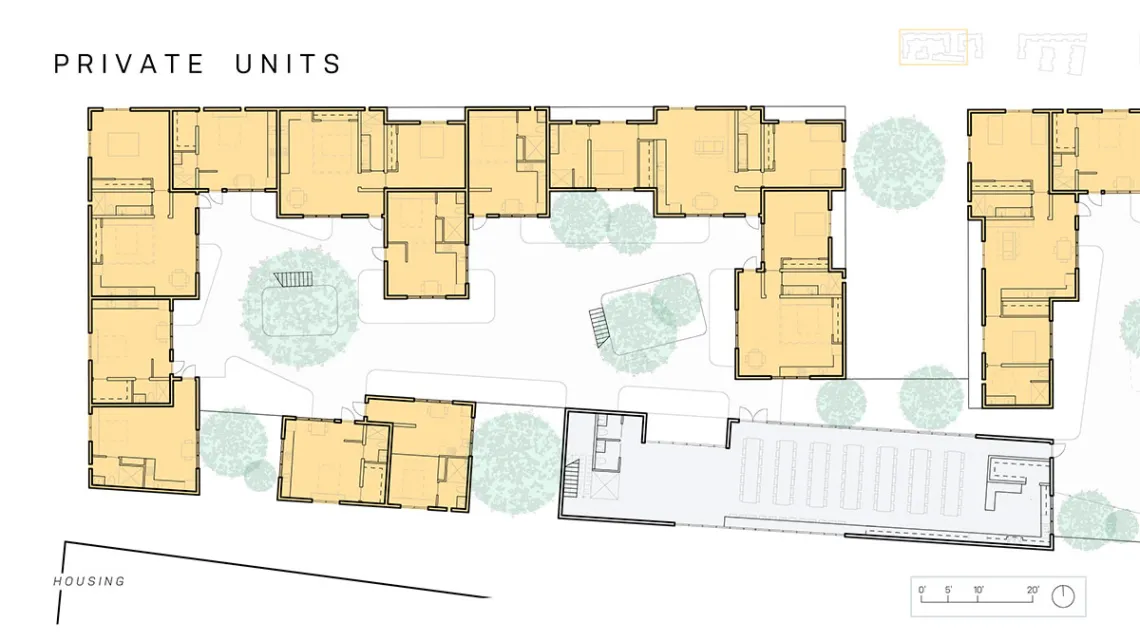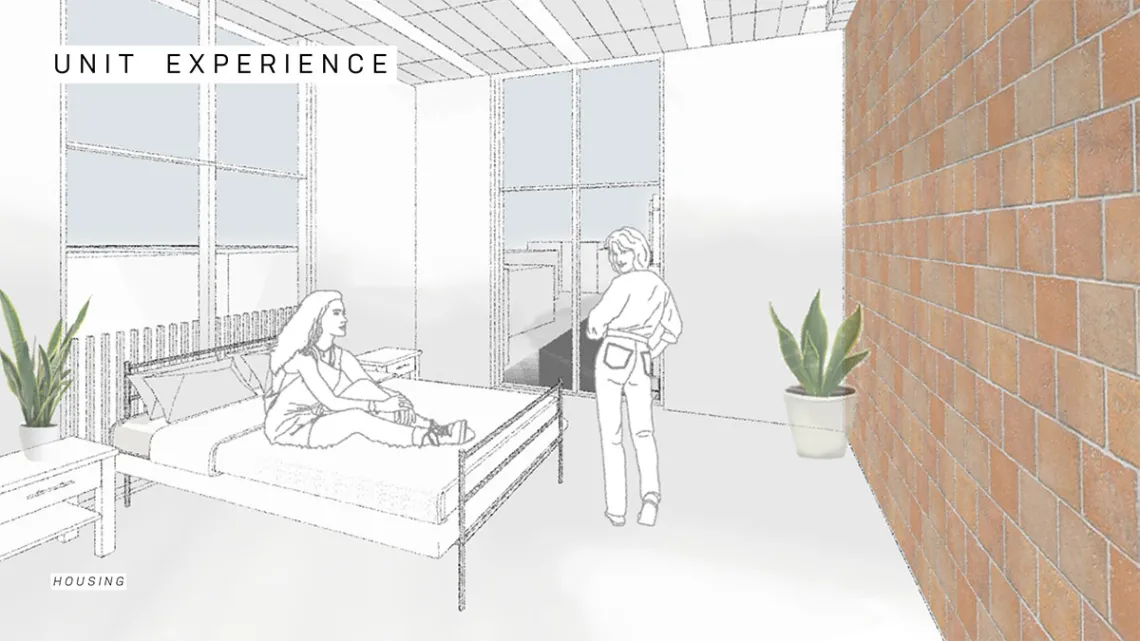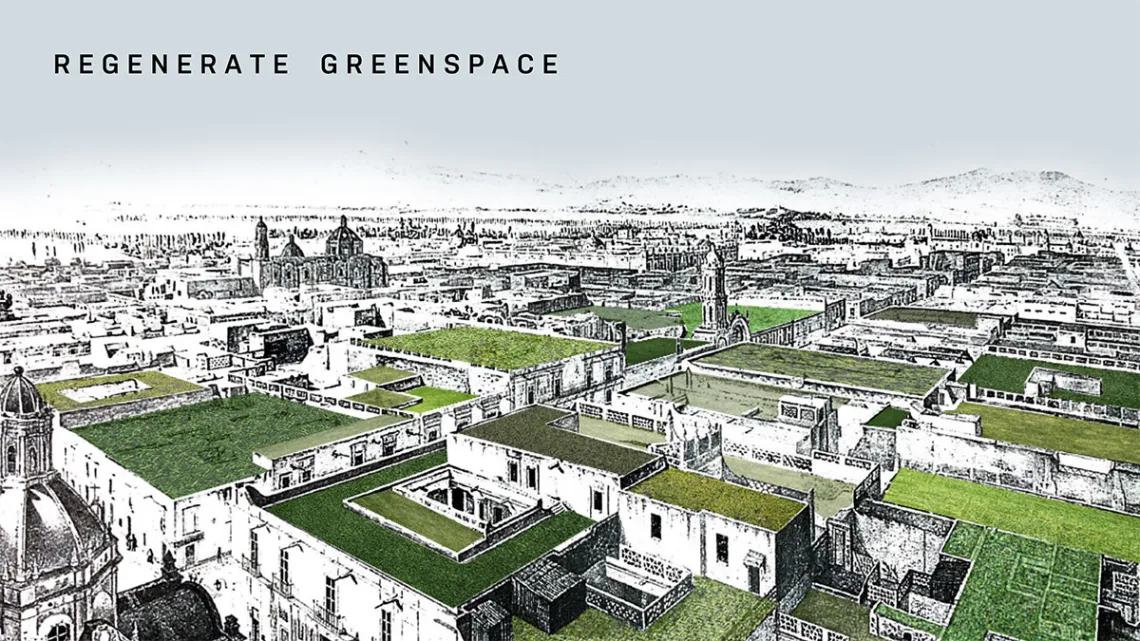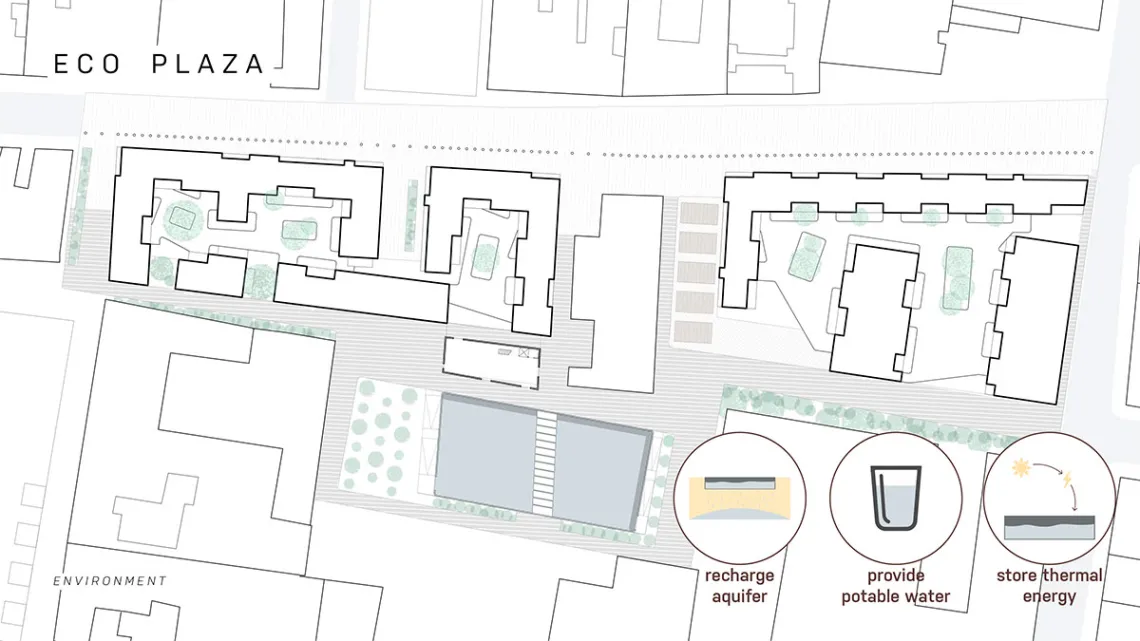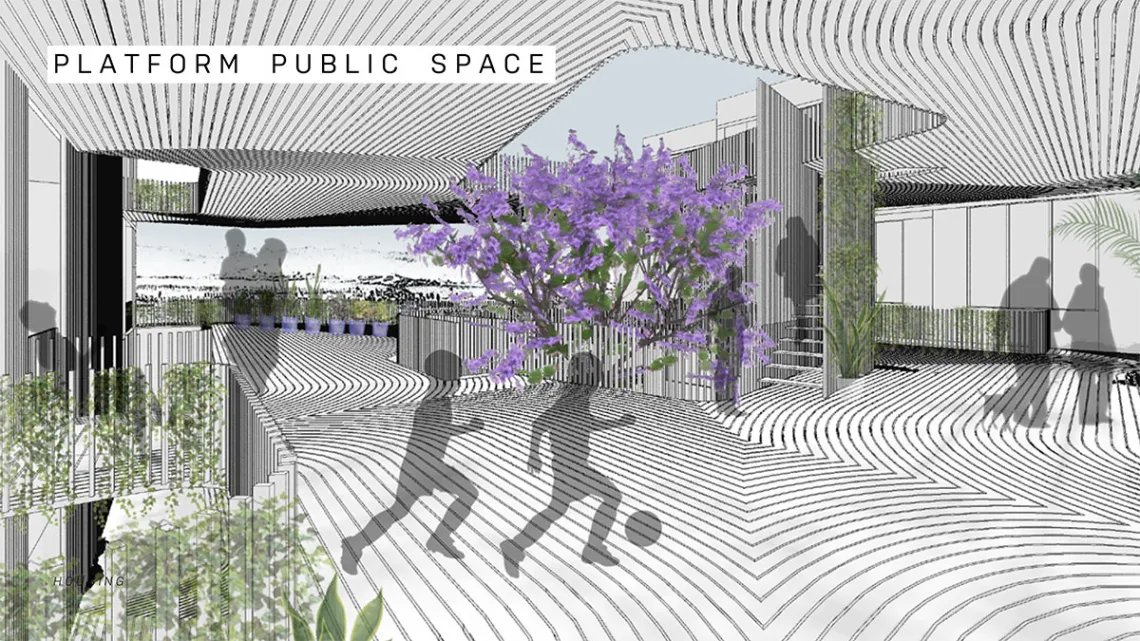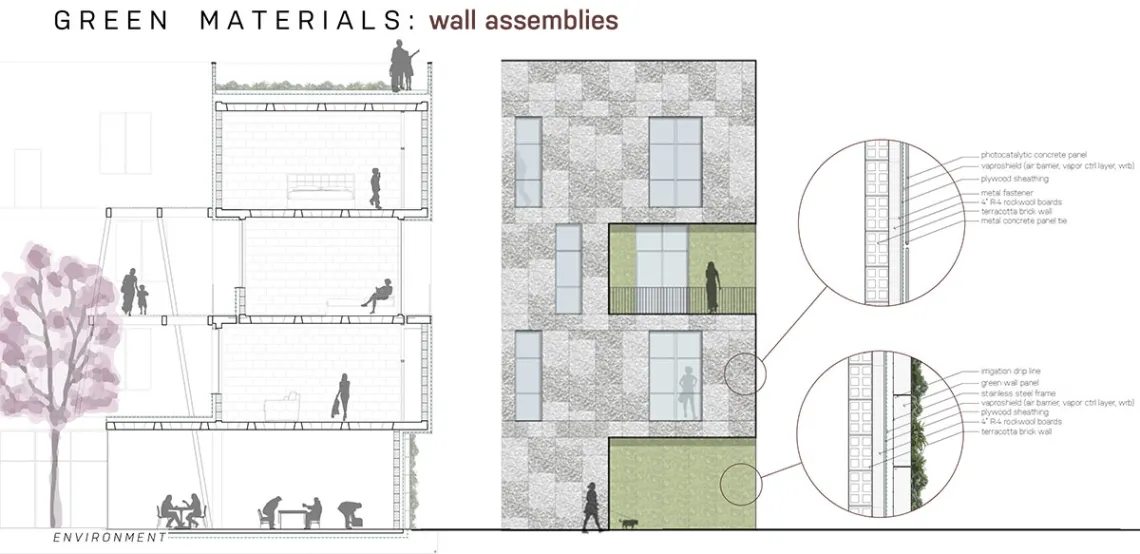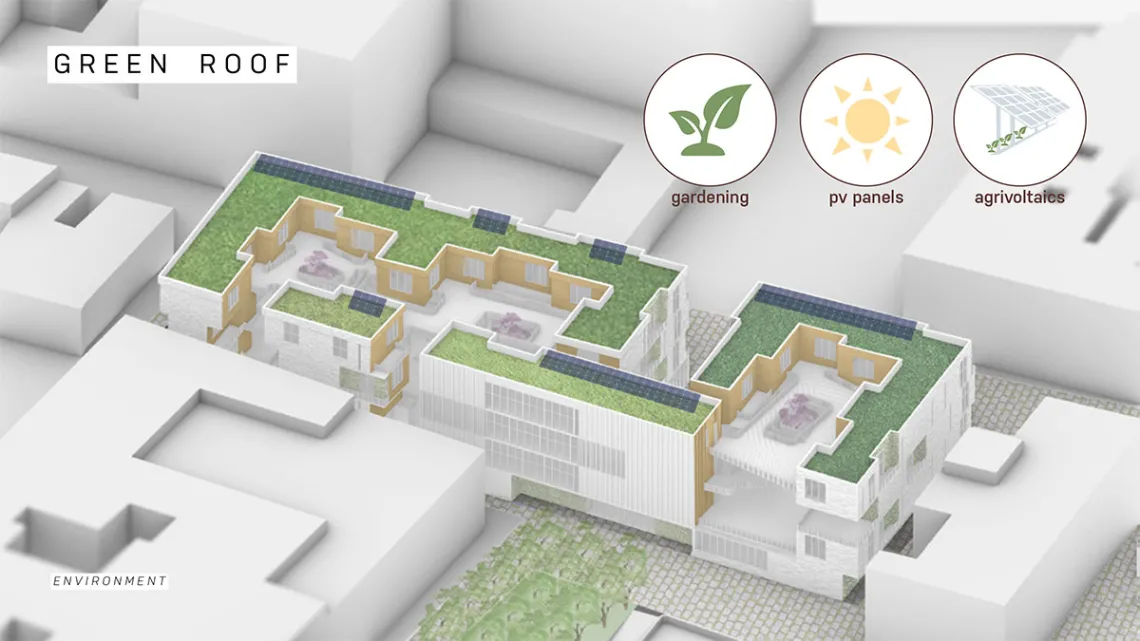Vecindad Viva: Bianca Bryant '20 B.Arch
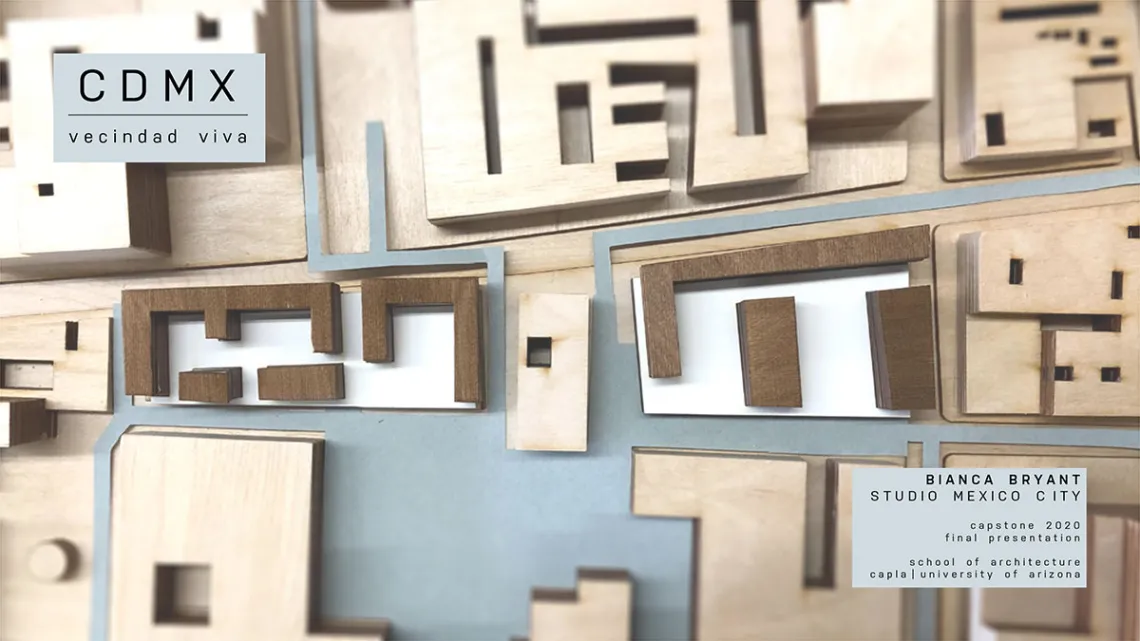
The continuous growth of Mexico City has made the city a vibrant, complex and unstable place. As infrastructure becomes stressed, it is important to realize designs that respond to the needs of both the people and the environment. In the case of Mexico City’s Centro Histórico, the three main areas of interest are addressing water concerns, providing affordable housing and preserving historical site significance. Each of these factors contribute directly to the conceptual design of Bianca Bryant's architecture capstone project.
Vecindad Viva is a mixed-use residential project that focuses on revitalizing Mexico City’s historic network by providing a commercial ground floor with various amenities to bring people into the site. The three upper stories contain residential cohousing elements that provide much-needed affordable housing to the area while also encouraging the traditional close-knit relationships commonly found in Mexican households. The structure evolves the form of the typical Mexican vecindad, or “neighborhood,” typology by providing dynamic stacked courtyard spaces. Lastly, the materials and the outdoor plaza address environmental issues such as water scarcity, flooding and pollution through methods of water collection and carbon sequestration.
Image Gallery
Click a thumbnail below to view a larger image and begin slideshow:
All images are by Bianca Bryant and may not be used or reproduced without express written permission of their creator.


